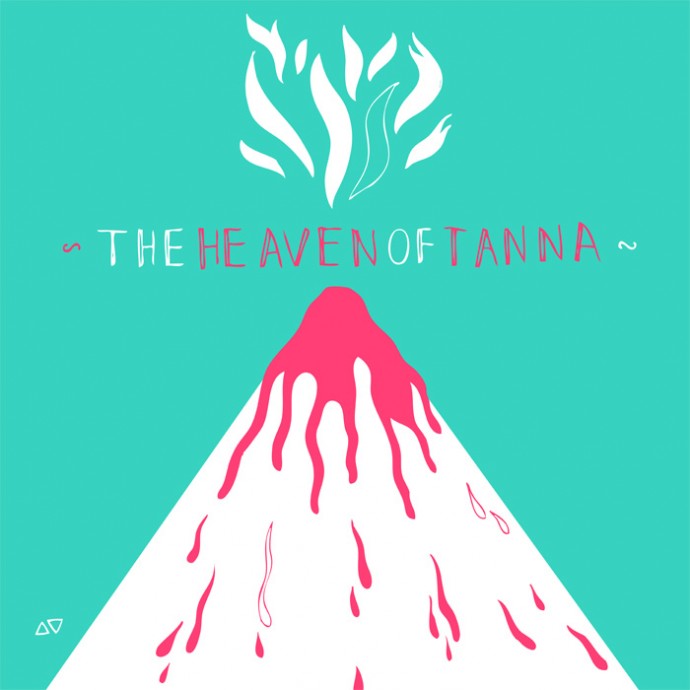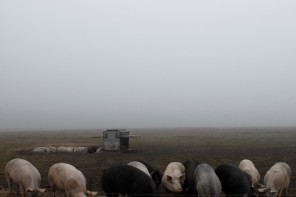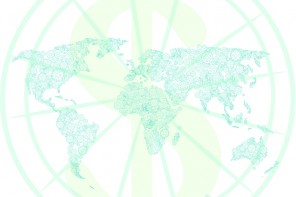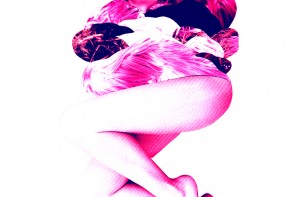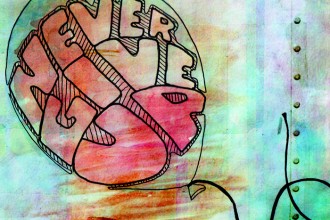I still hear the laughter of the most beautiful children in the world; curly blond kids welcome me as I drink fresh water from the coconut. Colourful dresses, straw huts and old women wrinkled by the sun look at me surprised. A life away from any traditional modernism, I’m in Tanna, one of the 83 islands of the Republic of Vanuatu, an island nation located in the South Pacific Ocean.
I came to Tanna after spending a few days in Port Vila, the capital city which generally lacks charm apart from her curious main avenue, full of tacky and flowery shirts, several souvenir carts and a main fruit market that stays open all night. I became fond of its cheap and tasty mangoes.
Tanna Airport is one of the smallest I’ve ever seen, simple and poor. Arriving on a small Air Vanuatu plane, I am in the jungle without any plan. I travel in a local car and get to what is said to be the cheapest accommodation in town, located just in front of the Mt Yasur volcano, the main tourist attraction of the island.
Thanks to Edwin, who works selling tickets at the entrance of the volcano ($60 per visit) I will have the opportunity to discover Tanna in a special way.
Edwin and I hit it off from the beginning. I instantly trust him, maybe because of his enormous white smile which contrasts with his skin – people from Vanuatu are Melanesians with dark skin and strong features. I explain that I don’t want to waste my time in a hostel surrounded by snobbish Australian tourists. I also complain about the price of the volcano and, having lost all sense of time, realise I have spent some hours chatting with him. He invites me to stay for a few days in his village without tourists dressed as scouts. In addition he gives me a substantial discount to visit the volcano.
With my ticket in hand, my backpack and some bananas to be shared on route, we head up to Lenakel, which will be my town over the next three days.
Most islands in Vanuatu have been inhabited for thousands of years. The current population of the country is around 250,000 so the trip to Lenakel, which lasts an hour and a half, becomes pleasurable even with my backpack and a violent sun. Everything is deserted and the landscape is mountainous and volcanic. I enjoy the walk like a little girl and sing songs that come to mind – when I’m happy I sing.
The welcome is just spectacular. I feel as if I were in a movie, as if I were seeing the world through a camera. The colour of straw huts arranged in rows contrasts with the fluorescent green of the grass and with the dresses of the women who wear them. Colours, lots of colours and a great order, that is my first impression. Unlike other communities I have visited in Southeast Asia or South America, this village is extremely clean. There is much attention to detail and even small flowers look happy.
With almost perfect English, at least better than mine, villagers started to ask me questions and were surprised because I was not married. Besides having thousands of different languages, English and French are official languages as well as Bislama, the traditional language which mixes words from English, French and other Aboriginal languages. Bislama is very similar to the languages spoken in Papua New Guinea (Tok Pisin) and the Solomon Islands (Pidgin). It dates back to the nineteenth century when many Ni-Vanuatu people were recruited to work in Australia and Fiji. Currently 95% of Bislama is based on English.
My best friend in Lenakel, besides Edwin, is Roy, a kid of only seven years who is in charge of all the children in the area including the older ones. I spend hours with the girls, who braid my hair and are surprised because I know how to play palms. I show them “En la calle 24”, the Spanish song every little girl must know, and they hum as well as they can. We go to the beach and refresh ourselves with delicious coconut water that they grab directly from the palms. Roy is the most agile, climbs like a pro. He reminds me of Mowgli from “The Jungle Book.”
Captivated by my surroundings Vanuatu makes me feel like a real traveller. I’m not just a tourist here. I’m being culturally educated, learning simple things that western people don’t think about because we are too busy with our shopping, cell phones, twitter and the like. I spend my time recording and absorbing the daily lives and customs of the tribe. All of them know how to build a house, an open fire and cook the fish they have just catch from the sea or, if vegetarian, vegetables picked from their own land. Indeed, 80 percent of Vanuatu’s population exists on subsistence farming.
Actually, what I like most about Lenakel, besides the people and their incredible generosity, is the food. I was lucky enough to arrive during a workshop organised by the Government of Vanuatu. A couple of teachers from the capital came to teach the village women how to cook. They made terrific delicious dishes. Kumara and spinach leaves topped with a coconut sauce, fish and rice with vegetables, tropical fruits with exotic taste. After lunch I’m thinking about dinner. Yummy, yummy.
Lenakel, though traditional and chauvinist, is a town where everything is shared and it breathes happiness. Community life leads to great equality. Everyone eats the same thing, works as a team and no one is richer than the other. The village of 80 inhabitants is like a big family. Perhaps it is precisely this collective lifestyle which makes Vanuatu one of the happiest countries in the world. In fact, according to a 2006 study by the New Economics Foundation, Vanuatu was the happiest country in the entire world, just as it was in the Happy Planet Index in 2011.
As happy as I am in Lenakel (where the happiness is contagious) the most impressive part of the island is still to come. Visiting the volcano Mt Yasur is priceless, though at the time I complained about the $60.
Rising 361 meters above sea level, this is one of the world’s most accessible volcanoes. For more than 800 years it has been active but the eruptions, often several per hour, are usually moderate. I spend some time watching the lava flow and listening to the spectacular sound that embraces the entire landscape. I take pictures, make videos, watch the red volcano over and over and I forget my fear of heights for a while.
That night Edwin proposes that we visit one of the most unusual villages in Tanna where the tradition of adoring John Frum is still alive. Villagers spend every Thursday night singing to this American guy who will supposedly bring wealth and prosperity to the entire island. Legend has it that John Frum appeared many years ago on the island wearing an expensive fur coat and promising the inhabitants houses, clothes and food. It seems surreal to think that an American-style Santa Claus will come and present all sorts of material objects. Amazed by the devotion in singing I look one way and the other just in case John appears and doesn’t give me any gift because of my distrust but I finally decided to join them. With a colourful skirt they offer me I start to dance like a real Frum fan. The songs are really catchy. How cool!
This island makes my journey seem like a dream, a moment out of time.
At 6am the next day a car is waiting to take me to the airport. I had spent four days in Lenakel village showering with a humble water jet, using a hole for a bathroom, eating all kinds of vegetables that were unknown to me, taking pictures with villagers and playing palms with the girls. I enjoyed some of the most amazing sights I have ever seen: beaches, mountains, palm trees and an active volcano.
Most of the villagers are sad to see me leave and they gift me a little purple straw bag and necklace. I thank them over and over and, after some tears, I say goodbye to this great family. Yes they are ‘poor’ in terms of their infrastructure. They have no phones or refrigerators but their wealth is of a different kind: they have each other. They involve themselves with every person and, in everything they do, they are kinder than expected, more generous than imagined and more positive than we thought possible. I can assure you they are happy. Their smiles prove it. Thanks Lenakel!
On my way to the airport I remember the smiles of children and my last night in town. There was a shimmering moon. The sky was full of stars and, when the volcano erupted, it was painted in orange. I think of the simplicity of their lives and I remember that, while our society invites us to fill our lives with material objects, the better part of us knows that more basic pleasures are the ones that enrich and sustain us. I’m going back to Port Vila, the capital.
That night I stay at a backpacker hostel owned by an Australian man who had been in the country for over ten years. He explains that what he likes most about Vanuatu is its virginity and the very little tourism activity. He also divulges to me his most well kept secret: Vanuatu is still a tax haven. There really is no income tax, no capital gains taxes, estate taxes or withholding. Foreigners, who are always welcome, find in Vanuatu not only a paradise but also a refuge.
It would be nice to retire here, right? I go to sleep imagining myself retired with a floral dress and the next day I head up to Malekula, known as the island of the traditions. Even more traditional than Tanna? My journey is not over yet.

